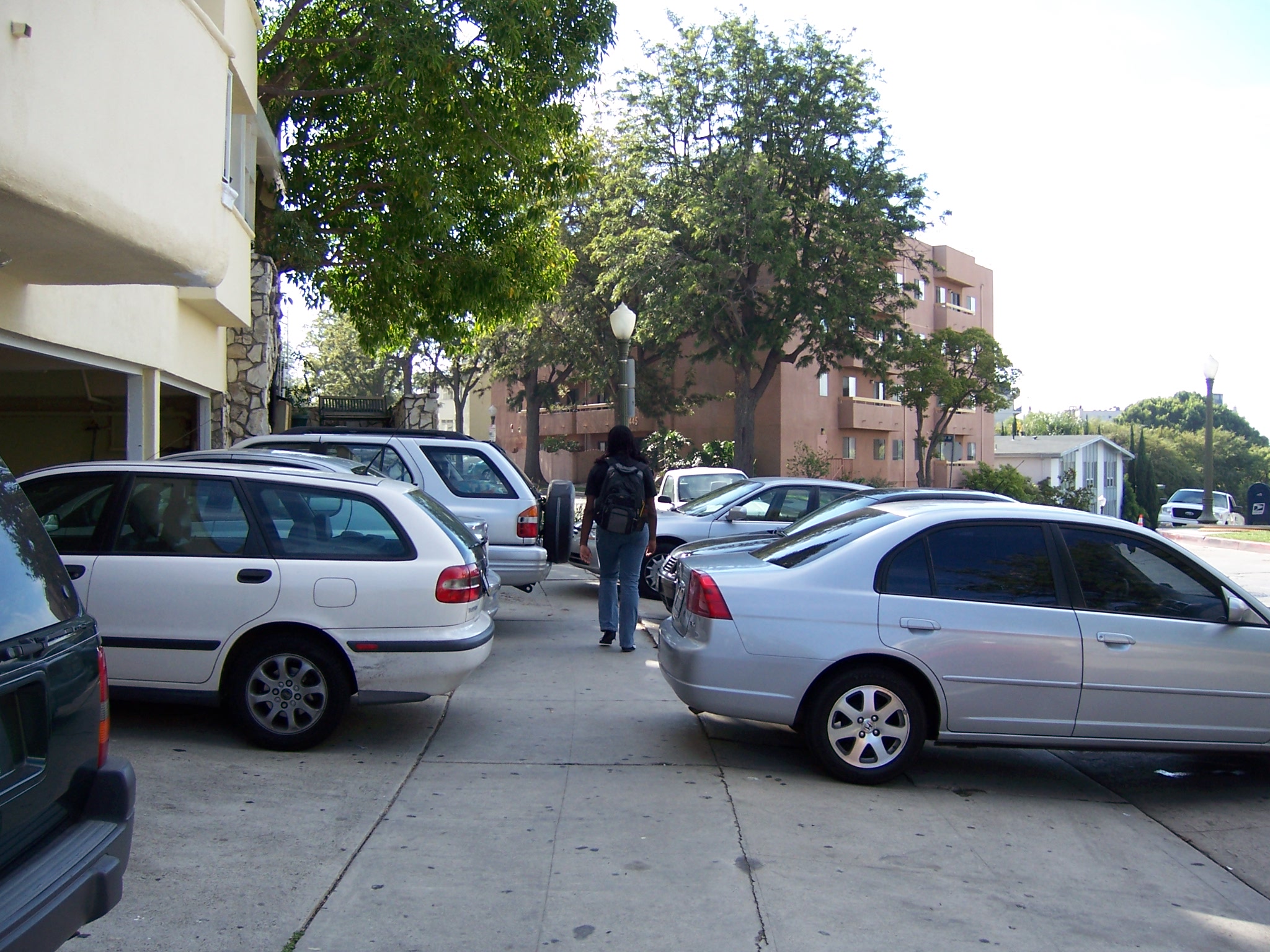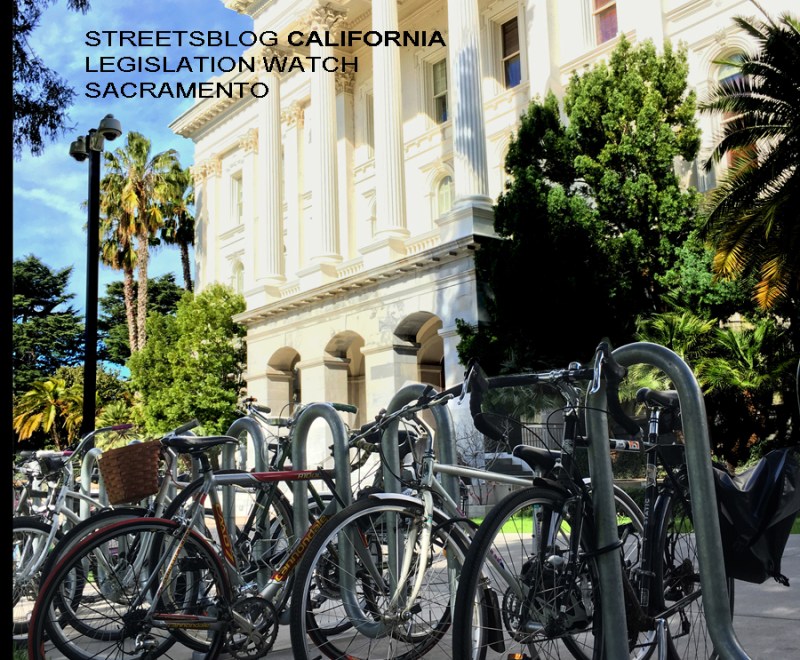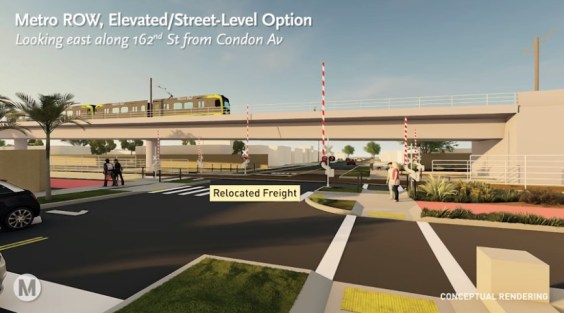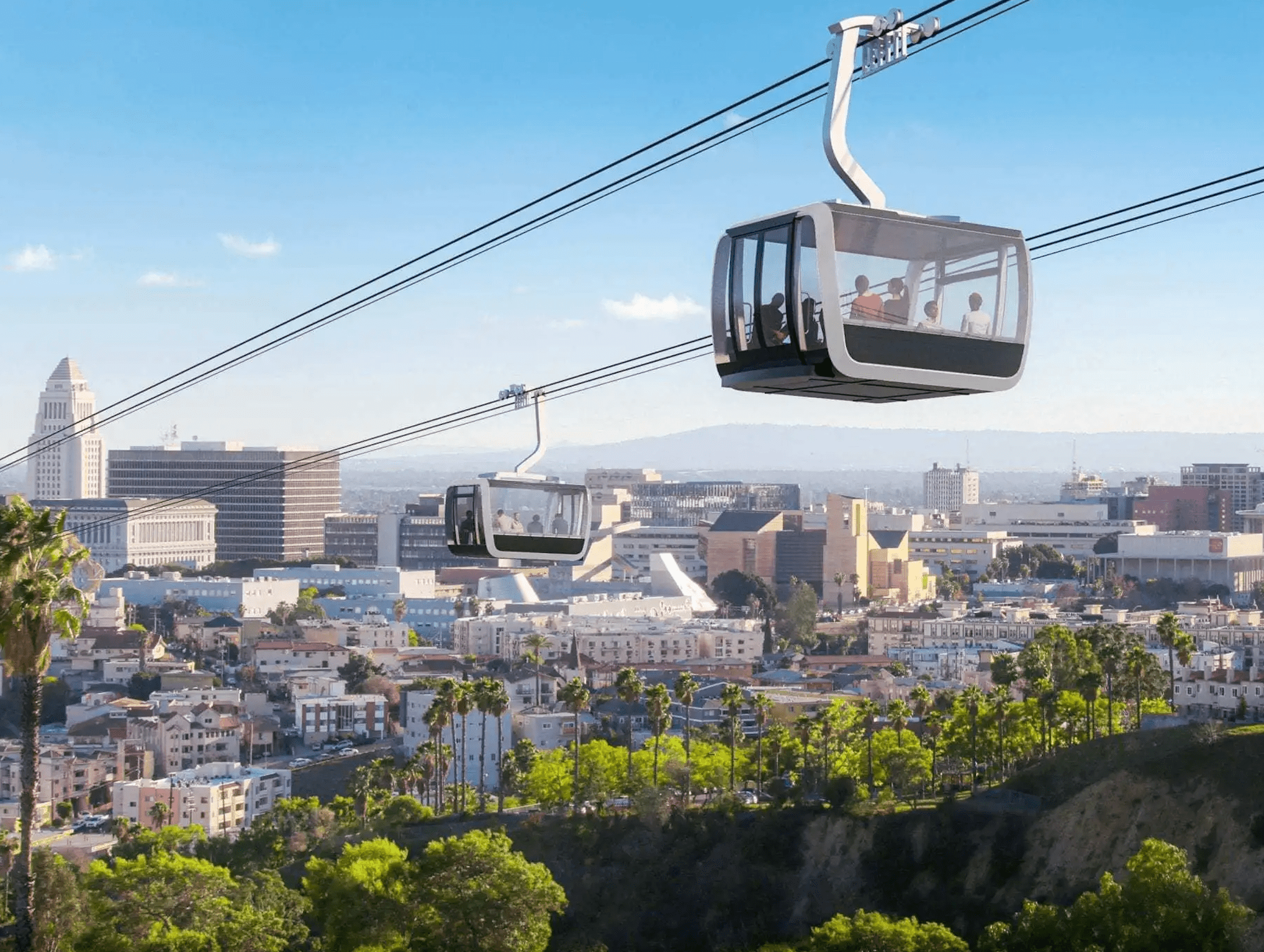To Get People Using Clean Transportation, First Know What They Need
3:53 PM PDT on October 2, 2020
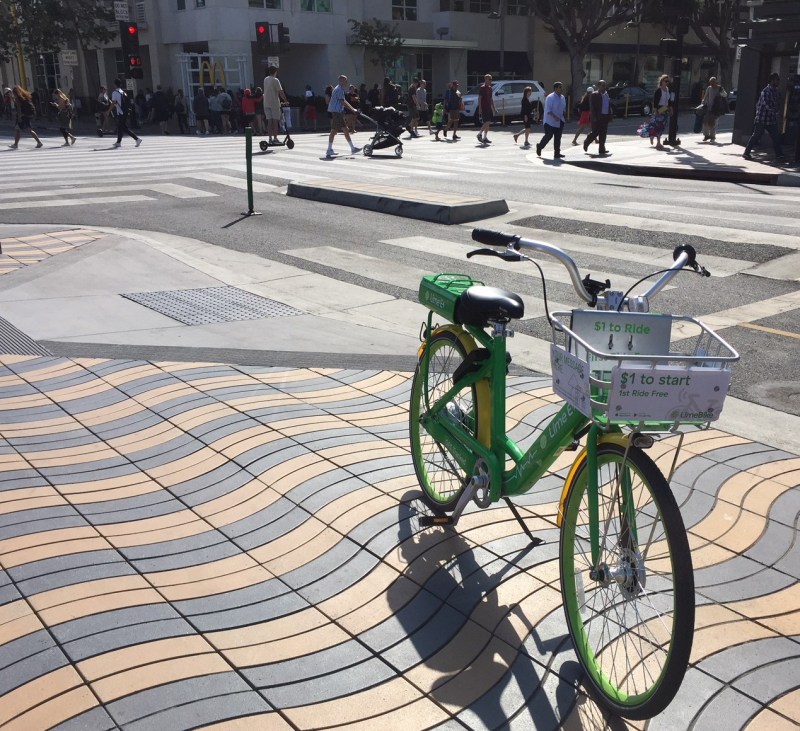
Does a community want bike share? Better pedestrian crossings? Would clean buses be better? The Clean Mobility Options program says you gotta ask people. Photo by Joe Linton/Streetsblog L.A.
Note: GJEL Accident Attorneys regularly sponsors coverage on Streetsblog San Francisco and Streetsblog California. Unless noted in the story, GJEL Accident Attorneys is not consulted for the content or editorial direction of the sponsored content.
One of the many things the California Air Resources Board is tasked with is figuring out how to help people get around their communities via non-polluting modes. One of its programs, Clean Mobility Options, will give out grants to help communities develop ways to do that, via zero-emission carsharing, car or vanpooling, bike or scooter-share, or innovative transit or on-demand ride services.
Applications for the CMO vouchers open on October 20. But for a project to be eligible for funding, the applicant must show that it will solve the needs of the community it will serve - as defined by the community itself.
But finding out what the community needs has turned out to be a barrier of its own. Some of the places that most need help on making clean transportation modes accessible to their residents also have the least capacity to do a comprehensive assessment of what people need.
These tend to be low-income areas, where people spend a higher portion of their income on transportation, and are more likely to be subject to unhealthy air quality for more days of the year than other areas of California.
So the Air Resources Board launched a pilot to fund and support meeting this requirement. The first batch of Community Transportation Needs Assessment grants - actually vouchers, as it is a reimbursement program - were just awarded. They will give out $50,000 each (in most cases) to 24 nonprofits, local governments, transit agencies, and Native American tribes, out of a total of about 41 applicants.
The money comes with technical assistance to help the groups formulate their outreach.
The awardees include advocacy groups like ActiveSGV and Bike Ventura; tribal communities including the Big Pine Paiute Tribe in Owens Valley and the Paskenta Band of Nomlaki Indians in Tehama County; city and regional agencies including Fresno Area Express and Kern Council of Governments; and community-based organizations including the Latino Equity Advocacy & Policy Institute (The LEAP Institute), the Urban Collaborative Project in San Diego, and Youth Transportation Organization (YOOTS).
A complete list of awardees can be found here.
These organizations will be reaching out in the coming months to ask community members about their transportation modes and preferences, and about what would improve their transportation choices. Some of the grantees already have a proposed project in mind; some are reaching out to see what kinds of projects would best serve the communities in question.
Richmond
For example, Yoots is a Bay Area nonprofit that helps provide clean - and inexpensive - transit options for local youth organizations. Its founder, Craig Flax, said he could see that transportation was one of the biggest barriers for youth-serving organizations, and he decided to use his network to create more, and more affordable, options. Yoots is partnering with the Richmond Outdoors Coalition, an organization that brings together youth-serving community groups working to expand equitable access to the outdoors for families and youth in Richmond, California. Its member organizations - Rich City Rides, YES Nature to Neighborhoods, and the Watershed Project - all have years of experience working in and with the community.
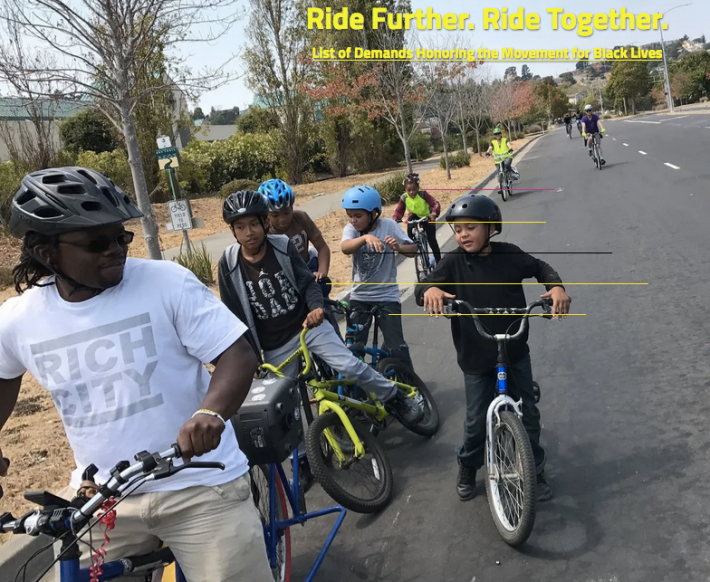
Their plan is to train members of these three groups to do the 'boots on the ground' outreach, including deciding what is the best way to contact community members, given COVID. The youth and adults who do the work will be paid a stipend for their time, and the people who take the survey - by phone, in person, or via Zoom-based focus group, depending how the organizations decide to conduct the outreach - will receive a gift card.
All three organizations will then help evaluate findings from their outreach and formulate recommendations for future projects based on what the people in their communities say.
"I give credit to the CMO for making this a requirement," said Jennifer Mulholland-Beahrs of the Richmond Outdoors Coalition, "and for funding it. This is a strong way to make sure community voices are integrated into any project."
The surveys will focus on questions about how people travel, where they'd like to go and what places they can't get to, and how safe they feel walking, for example. There will separate questions for youth and adults, likely covering transit, costs, transporting children, and other issues.
While Flax and Mulholland-Beahrs have some ideas about projects that might help improve transportation in Richmond, they have no set outcome in mind. Instead, they look forward to seeing what bubbles up from the responses.
KernCOG
Another grantee, KernCOG, will be taking a slightly different approach. The agency wants to know whether an ebike share program would serve the members of about twelve rural communities in the region. Many families there "have access to only one vehicle, if that," said Susanne Campbell of KernCOG, who is overseeing the outreach. These are small communities where people need to travel some distance to do errands, go to school, and get to medical and other appointments. Those distances could be easily covered by ebike - if people are interested, and willing, to ride bikes.
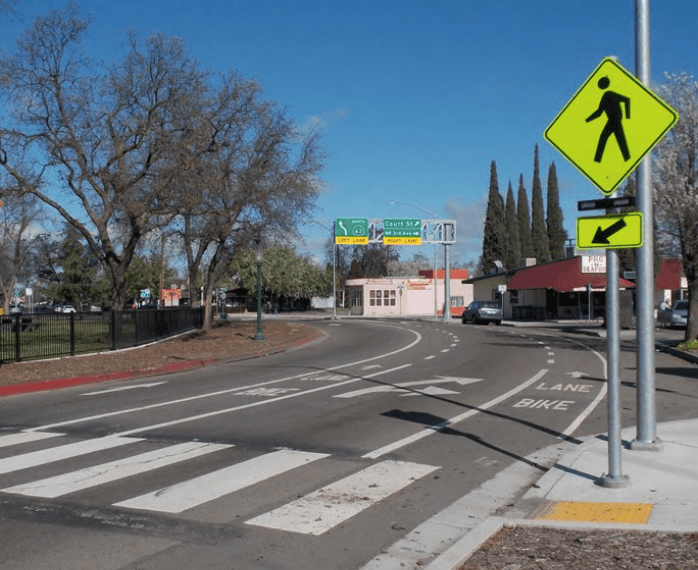
"A lot of people are walking along busy, two-lane highways with heavy truck traffic," she said. "We've done numerous surveys about what infrastructure is needed to make people feel safer," said Campbell. "But we also want to know whether people would use ebikes if we were able to make them available."
That outreach may include bringing ebikes to community members so they can see for themselves whether it's a viable mode. "And if they did want them, we want to know what other services they might want as well - such as repair, programming, or training on ebike use," she said.
Recommendations
The plan for many of these organizations is to have completed their outreach and come up with project recommendations before the next round of CMO grants is announced, some time in spring or summer of next year. That way, they will already have completed the first requirement of gathering public input.
As a needs assessment itself, the grant process itself is informative. The program was oversubscribed within a few hours of the applications being opened. Almost as many applications were rejected simply because there was not enough money to cover all the need out there - and who knows how many others didn't apply because the vouchers were gone so quickly.
In other words, it's clear that there are a lot of communities looking for help, and that they need the help from the first step. A few other state programs take this approach - the California Sustainable Transportation Equity Project, for example, and the Transformative Climate Communities program are both aimed at creating community-building capacity to make sure the program goals are met. The Active Transportation Program includes some requirements for public input, but they are very not very stringent.
The CMO model - insistence on real, ground-up community outreach, and providing support to give community groups that are already working on these issues the time and resources to conduct it - should be adopted by more public funding programs.
What would it be like if rigorous public outreach were required for, say, freeway widening projects? Probably different from the situation today - where engineers propose outdated "solutions" to congestion without consulting or even really considering people who would be affected by their outdated notions.
Highway widenings are just assumed to be necessary, and few engineers or funding agencies question that assumption. In contrast, these comparatively smaller transportation programs are forced to prove their worth by collecting, measuring, and analyzing what community members say. Would that highways had to do the same.
Streetsblog California editor Melanie Curry has been thinking about transportation, and how to improve conditions for bicyclists, ever since commuting to school by bike long before bike lanes were a thing. She was Managing Editor at the East Bay Express, editor of Access Magazine for the University of California Transportation Center, and earned her Masters in City Planning from UC Berkeley.
Stay in touch
Sign up for our free newsletter
More from Streetsblog California
Thursday’s Headlines
CA youth speak out on climate: How LA Metro plans to spend $ from canceled 710 freeway; Watch out, illegal SF parkers, tickets are coming; More
Legislators Tackle AV, School Zone Safety
Are AVs freight trucks ready to be deployed on California roads with no one in them?
Metro Looks to Approve Torrance C Line Extension Alignment
Selecting the relatively low-cost hybrid alternative should help the oft-delayed South Bay C Line extension move a step closer to reality
What to Say When Someone Claims ‘No One Bikes or Walks in Bad Weather’
Yes, sustainable modes are more vulnerable to bad weather. But that's why we should invest more in them — not less.
Wednesday’s Headlines
Road project leaves Half Moon Bay residents without access; Kern County residents concerned about a carbon capture plan; Who works from home in the Bay Area? More
